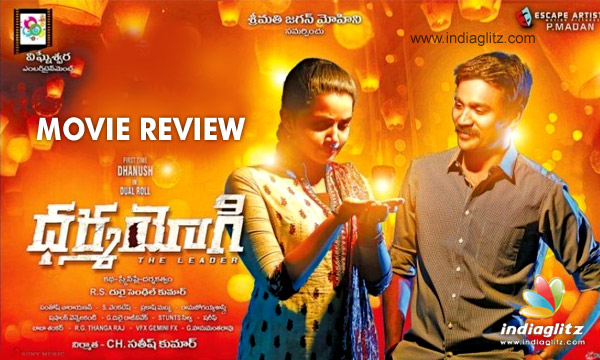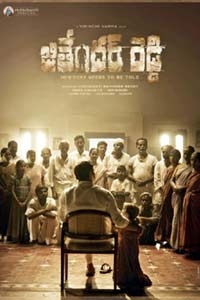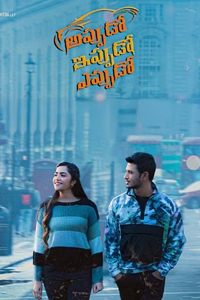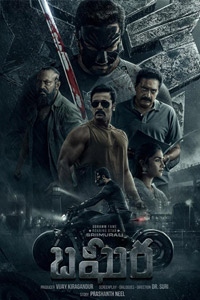
'Dharma Yogi', starring Dhanush, Trisha, Anupama and others, has released today in the Telugu States. Here is our review:
Story:
Way back in the early 1990s, a deaf and dumb man (played by Karunaas) was a dedicated political activist who sacrificed himself in the cause of the victims of a scandalous mercury plant. One of his twin sons grows up to become a sincere-minded, aggressive yet disciplined political activist Yogi (Dhanush), while the other son grows up to become a no-nonsense, even timid college lecturer named Dharma (Dhanush, once again).
Yogi's secret girl friend Rudra (Trisha Krishnan) belongs to the rival, ruling party, but they don't let their equations spill over into their political careers. By a quirk of fate, circumstances propel them into becoming the MLA candidate of their respective parties. As Yogi rises to the occasion at the prompting of his brother, the mercury plant scandal resurfaces after two decades, threatening the political career of a leader belonging to his party.
At the same time as Rudra can't get over her ambitions, her machinations trigger twists in the plot.
How does all this affect Yogi? What of Rudra, whose value system is in contrast to Yogi's? What of Dharma, the unsuspecting brother? These are narrated in a gripping, understated way within the template of a faithful political thriller.
Analysis:
First things first. 'Dharma Yogi' is one of the most brilliant story lines belonging to its genre in recent times. The story has enough potential to be evolved into a racy narration full of twists and surprises. The screenplay materializes this potential into an actuality by embellishing conversations with intelligence. A case in point is the most delicate of the scenes: those involving Yogi and Trisha.
Before going the whole hog, the writer-director (Durai Senthilkumar) goes cool. There is a breezy track involving Dharma and 'Kodigudla' Malathi (Anupama Parameswaran). There is a certain bonding between Dharma and his mother (Saranya), who has stopped talking to Yogi for choosing politics. The Yogi-Rudra track is narrated with a sense of relaxation.
Then, without getting self-conscious, the film gets intense toward the interval. The episodes narrating the selection of MLA candidates by the rival parties are juxtaposed in parallel, evoking a sense of curiosity about the impending tussle involving the two most important characters. The rise of Rudra in her party and the tricky situation that Yogi is thrown into by his party's boss, of whom Yogi has been a staunch loyalist, mark a stunning interval block.
A political thriller, the emotions arrive with a bang. At least two moments are haunting in the first half. Watch the scene where Karunaas, before self-immolating, decorates his pre-teen son with a shawl and asks him to read out a letter. Not knowing that it's his father's suicide note, the son Yogi delivers it like a speech as if he were a politician. The deaf and dumb father's political dreams for his son are brought out through this remarkable moment that is haunting. The other one is Yogi's dilemma when his political Godfather gets his comeuppance for putting the party in an embarrassing situation in pursuit of his idealism. Once again, a remarkable, haunting moment.
Unpredictability aside, the film has a certain non-indulgent, measured quality about it. Even an earth-shaking, bloody moment is narrated without much melodrama.
Rudra's equations with her party elders, the relationship with Yogi, and her secret, selfish ambitions are a treat to watch. Trisha essays with a seasoned maturity one of the most well-etched woman characters in recent times. A favourite pick is the scene where, on being elevated in her party, she walks into her cabin and chides her political Godfather like a pro, asserting herself and telling the superior-turned- subordinate that she won't tolerate nuisances in her quest for electoral victory.
A high in her characterization is the way she talks to Yogi on phone after falling from grace in her party, only to later do something she mightn't have thought she would do. When she does it, she is seen taking frightened (?) steps backwards, making the audience wonder what she might be thinking. It's moments like these that tell us that this writer understands human inclinations and psychology well. (Also watch out for that scene where the mother tears off her son's posters without affecting the side of the poster with his photograph).
Story-wise, the second half has a surreal characteristic about it. This needed a more intelligent telling. The director has failed here, descending the film into simplistic narration and even cliched, cinematic moments. Suddenly, the realism seems to give way to creative liberties. Not that the story line is at fault. What is problematic is the resorting to some stock scenes. The running song in the backdrop of momentous events in the life of the hero and Rudra in the anti-climax portions is ridiculously lifeless. One also feels Saranya's behaviour is too vapid in the second half.
The brief but effective lines make a thorough impact. 'Teesukocche vallu kadu, thosukocchevallu janam's is one such.
Dhanush shines in both the characters with a brilliant aplomb. He is immensely watchable. Not to be left behind, Trisha delivers a fabulous performance. Anupama does't leave an impact. All the rest of the cast do a good job.
Santosh Narayanan's background music is excellent. Venkatesh S's cinematography and Prakash Mabbu's editing are a big plus.
Verdict:
A political thriller with an intelligent story line, faithful screenplay, beautiful performances, raciness, and twists. After an engaging, gripping first half, the second half loses steam somewhat. Nevertheless, the film is enjoyable overall. Trisha's character, Dhanush's performance and the technical departments put a great show. A potential Bollywood remake.










Comments